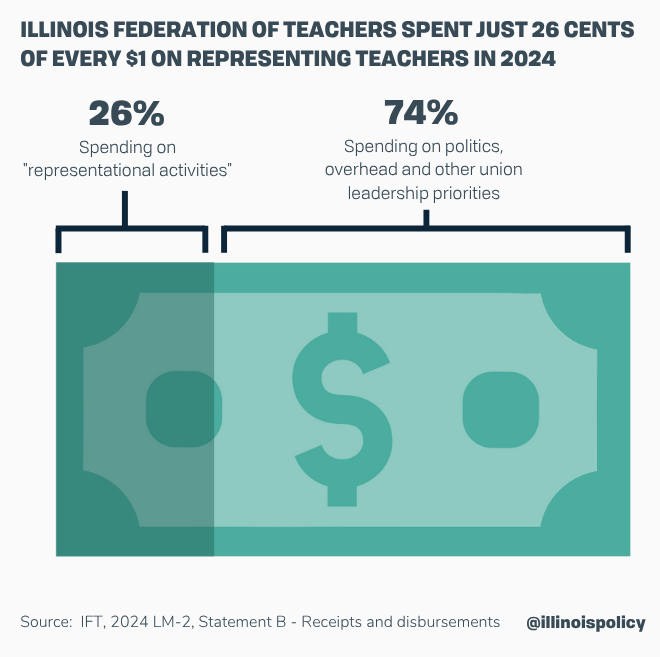Posts tagged DOL

Trump Is Making Major Concessions To Union Bosses. Is It Worth It?
August 15, 2025 // The Institute for the American Worker noted that union members who had funds embezzled by their leaders in recent years would now have less insight into how their dues were being spent. For example, in 2024, the Secretary-Treasurer of the International Association of Machinists and Aerospace Workers Local Lodge 2198 pleaded guilty to embezzling more than $63,000; under the proposed rule, the group would no longer have to file an LM-2.
Proposed NJ regulations would impact up to 1.7 million self-employed workers
August 5, 2025 // Director of Independent Women’s Center for Economic Opportunity Patrice Onwuka told The Center Square that “New Jersey is proposing to alter its employment test that determines whether a worker is an employee or an independent contractor.” Onwuka said that “instead of greater clarity, simplicity, and certainty, the NJ Department of Labor is introducing new uncertainty, confusion, and complexity” with this ABC test. The ABC test would go from three one-sentence factors that must be met to prove independent contractor status to three factors each burdened by numerous sub-factors or, as shown in an Independent Women news release.
Trump Just Saved Thousands of Disabled Americans’ Jobs
August 5, 2025 // Disability-rights advocates have long insisted that, as a matter of public policy, disabled people’s lives should resemble those of nondisabled people to the greatest extent possible. They have argued, for example, that “segregated” environments, which primarily or exclusively serve disabled people, violate the principle of normalization and ought to be abolished. And for decades, they have called for the repeal of Section 14(c), a provision of the Federal Labor Standards Act (FLSA) of 1938 that allows certified employers to pay disabled workers a subminimum wage commensurate with their productivity. Congress created the 14(c) program to enable people with severe disabilities to remain in the job market after the passage of the federal minimum wage. The Biden administration published a proposed rule in 2024 that would have phased out the program, claiming that it was “no longer necessary to prevent curtailment of employment opportunities.” But last month, the Trump administration announced it was withdrawing the proposal. In doing so, it preserved the jobs of thousands of severely disabled Americans who would have lost one of the staples of a “normal” life.
Boilermakers sue ex-president, demand he repay union nearly $500,000 he ‘misused’
August 3, 2025 // The Kansas City-based International Brotherhood of Boilermakers is suing the president it ousted two years ago, demanding that Newton Jones pay back nearly $500,000 of union money it says he misused. Filed Monday in the U.S. District Court for the Western District of Missouri, the lawsuit says Jones has ignored the union’s order to reimburse the money he’s accused of taking.
Union Reporting Threshold Threatens Worker Transparency
August 3, 2025 // Another issue is the lack of plain language on the LM 2 forms themselves. For example, they categorize money coming into the union as “receipts” — yet to most union members, a receipt is something someone receives after paying for something. The forms should be at a grade 10 reading level and broken down in one line, a simple explanation
National Right to Work Foundation Submits Comments Opposing Proposed DOL Rule Loosening Union Financial Disclosures
August 1, 2025 // Rule will let huge number of unions escape meaningful scrutiny over how union bosses spend worker funds while providing no tangible benefits
New Game Plan: White House and Congress Move to Clarify Student Athlete Unionization Rights
July 31, 2025 // The SCORE bill’s ban is broad. Its key provision says, in part: “no individual may be considered an employee of an institution, a conference, or an interstate intercollegiate athletic association based on the participation of such individual on a varsity sports team or in an intercollegiate athletic competition as a student athlete.” In addition, the bill blocks states from enforcing any law that “governs or regulates the compensation, payment, benefits, employment status, or eligibility of a student athlete (including a prospective student athlete) with respect to participation in intercollegiate athletics.” It specifically blocks any state law that “relates to the right of a student athlete to receive compensation or other payments or benefits directly or indirectly from any institution, associated entity or individual, conference, or interstate intercollegiate athletic association.”

Illinois teachers can opt out of unions in August. Here’s why they should.
July 30, 2025 // Just 15% to 26% of Illinois teachers union spending was on representing teachers in 2024. But public education employees can opt out of union membership and keep their hard-earned money.
LaborLab Exposes Employers’ Use of Anti-Union Persuaders in Recent Filings
July 29, 2025 // Among the notable cases, The Tustin Group in Fairfield, NJ, and American Rock Products in Yakima, WA, were found to have engaged persuader services at significant hourly rates. American Rock Products’ case is particularly striking as the union won the election, yet the consulting agreement was filed post-election. Similarly, Alro Steel Corporation in Jackson, MI, and Medix Ambulance Service in Hillsboro, OR, have also been implicated, with the former’s union losing the election and the latter’s case still open. These revelations underscore the importance of transparency and adherence to labor laws in protecting workers’ rights to organize. The delayed filings by some employers raise questions about the effectiveness of current regulations and the need for stricter enforcement to prevent undue influence on union elections

Unveiling Financial Transparency Failures in Labor Organizations
July 24, 2025 // In 2024 alone, the DOL recorded 177 union enforcement actions involving fraud, embezzlement, wire fraud, and falsified records. These are only the crimes that rise to the level of federal prosecution. Far more ethical violations, financial misuses, and questionable behaviors fall below the radar leaving union members in the dark and are quietly buried through internal repayments, hush resignations, or legal threats — all without any formal DOL investigation or public accountability. Despite 16 years as a union official, I did not become aware of the existence of LM-2 financial disclosure filings until our local filed a lawsuit against our state affiliate. Imagine that: even as a union president and past treasurer, I was unaware that both our state and national unions were required to submit LM-2 forms to the Department of Labor. If someone like me — deeply engaged in union governance — was kept in the dark, how can we expect average members to know their rights, much less exercise them?
